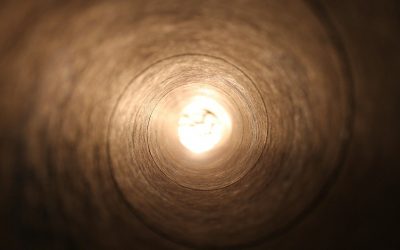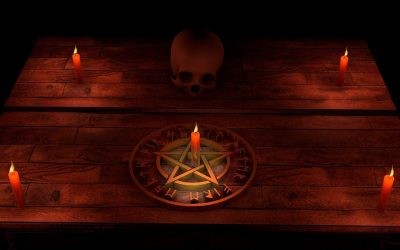I have been using this tarot invocation and getting great results! Here it is:
INVOCATION
An Oath Written during the Dawn Meditation
Aiwaz! confirm my troth with Thee! my will inspire
With secret sperm of subtle, free, creating Fire!
Mould Thou my very flesh as Thine, renew my birth
In childhood merry as divine, enchanted Earth!
Dissolve my rapture in Thine own, a sacred slaughter
Whereby to capture and atone the Soul of Water!
Fill Thou my mind with gleaming Thought intense and rare
To One refined, outflung to Naught, the Word of Air!
Most, bridal bound, my quintessential Form thus freeing
From self, be found one Selfhood blent in Spirit-Being.
I am not a fan of ritual, whether invoking or evoking, so why, you might ask, am I appearing to contradict myself? Nor do I consider Aiwaz to be my Holy Guardian Angel either, but I don’t change the wording. The concept of the HGA is wrapped up in monotheism – if you followed that logic I would only be able to consult one lawyer, or one doctor, when in fact I am free to consult where-ever I like. Furthermore, I have many spirits who help me – in effect, for me, Aiwaz is a portmanteau word, which in no way is disrespectful to Aiwaz – he is cool with it.
All of that is rather a long way round of saying that you can use the same invocation using Aiwaz, even if you do not buy into the whole shebang.
Etymology of Invoke and Evoke
The whole genre of Golden Dawn groups and their offshoots are quite blase about what they mean by evoke and invoke. The Free Dictionary gives this meaning for invoke:
1. To call on (a higher power) for help, support, or inspiration.
While evoke is:
1. To summon or call forth: actions that evoked our mistrust.
2. To bring to mind by naming, citing, or suggesting: songs that evoke old memories.
3. To create anew, especially by means of the imagination: a novel that evokes the Depression in right detail.
Magicians, whether invoking or evoking, have the mindset that they do not have an association with the spirit they are calling. Is that true? What if they already have an association, and they don’t know it? After all, apart from a particular need or power they believe the spirit to have, why invoke it in the first place? We need to maintain and develop our relationships dining out, bonding, drinking in the pub, sharing experiences. In the spiritual dimensions, thing are a bit different.
Analysing the Aiwaz tarot invocation
My own experience is a spirit visits unannounced, several times in weeks or months until I figure out how we can work together. This suggests a relationship exists in the first place. Which takes me back to Crowley’s invocation of Aiwaz, because he is re-establishing a relationship he already has. We see this from the first line, where he says “troth”, a pledge or promise, and he is reminding Aiwaz of this.
Crowley is asking Aiwaz to bring inspiration as a result of this promise. Troth has the slight suggestion of marriage too, and there is more of a sexual overtone with “sperm” in line 2 and “bridal” in the last line. The sex magic is clear.
Four elements in the tarot invocation
The entire poem is an invocation of the four elements and Spirit, but not in the order you might expect, which is YHVH, or Fire, Water, Air and Earth. The first two lines refer to Aiwaz, in seed, or bija mantra. The elements named at the end of the lines of Fire, Earth, Water, and Air are the reversed order of the Enochian word EHNB, which has the first letters of the elements, Exarp, Hkoma, Nanta, Bitom, and in the Tablet of Union of 20 squares containing the four Aces and the sixteen Court cards. Thus the entire poem is a paean to Union at all levels. The YHVH formula is critical, the notion that the Princesses as Earth are outside the system. In the Sepher Yetsirah, the 22 letters of the Hebrew alphabet assigned to 12 signs of the zodiac, the 7 planets, and three mothers representing Air, Water and Fire. There is no room for Earth or Spirit, which is remedied by extra rows for 32bis and 31bis in Liber 777.
The Princesses become the bride at the end where the magician starts with Spirit and finally becomes Spirit himself.
The Invocation seems to only appear in the Book of Thoth – we don’t know when Crowley received it, when he was practising the Sun Salutation. Since Aiwaz is not a deity to be worshipped, ancient energies are being invoked, older than the Moon God Thoth himself?





0 Comments